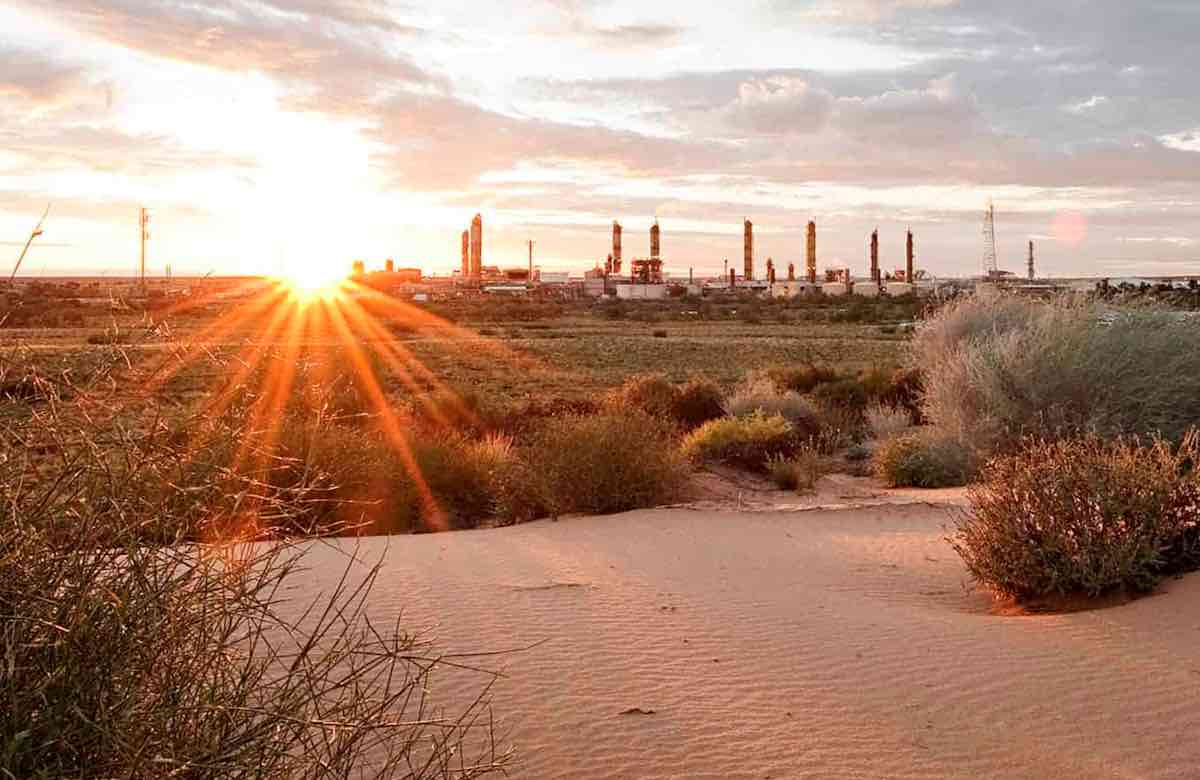Decommissioning or decomposing? Oil and gas giants in hot water over retired assets

Image: Santos
Royce Kurmelovs
Aug 5, 2025
Policy & Planning
Woodside and Santos are in hot water over their plans to clean up old oil and gas infrastructure as a new lawsuit questions whether there is enough money to cover remediation work and the regulator has intervened over several safety incidents.
On Friday the Wilderness Society filed a lawsuit challenging a decision by the National Offshore Petroleum Safety and Environmental Management Authority (NOPSEMA) to approve an Environment Plan submitted by oil and gas producer Santos to decommission infrastructure on an offshore gas field in northern Western Australia.
Reindeer-1 is an abandoned wellhead in a gas field in open water about 80km off the coast of Dampier, near Barrow Island. It includes three well-heads and feeds the Devil’s Creek gas pipeline.
As production on the field has ended, Santos proposed its infrastructure be “left in a preserved state for future phases”. The Environment Plan describes these “future phases” as “decommissioning, or repurposing”.
The Wilderness Society’s lawsuit challenges whether Santos has the money to cover the work and alleges the regulator did not ask the company to prove whether it can financially carry the cost of decommissioning the platform and remediating any environmental harm.
Fern Cadman, fossil fuel industry campaigner with The Wilderness Society, said that unlike hard rock mining, the Australian oil and gas industry has never had to plan for decommissioning and remediation costs during set up.
“What we’re seeing across the oil and gas sector is companies using every excuse they can to delay clean up and decommissioning, because there’s no real commercial value in decommissioning,” Cadman said.
“We’re really concerned that with company’s delaying clean up, and with no money set aside because the industry was never made to pay bonds, we’re worried they will cut and run, and the environment will be left with infrastructure full of toxic chemicals.
“These companies were given access to resources, they’ve made a lot of money out of them, their one promise was to clean up when they were done. Now the question is: do they actually have the money to do it?
“From what the Wilderness Society can see from publicly available information, it’s not clear that they do.”
Spokespeople for Santos and NOPSEMA said they were aware of the lawsuit but could not comment on a current legal action.
A Santos spokesperson said the company could not comment on “matters before the court.”
Santos has a checkered track record on decommissioning and remediation. An unknown number of disused wells it operated at the Legendre Field have been leaking gas into the ocean for the last decade. The company has previously said they are “ not technically feasible” to plug.
In late July, Boiling Cold reported Santos had disclosed in a consultation fact sheet that gas had been seeping from 13 locations on the seabed near Santos facilities around Varanus Islands off the Pilbara coast.
The company recently announced it received a $36.4bn takeover proposal from the Abu Dhabi National Oil Company in June, following a similar bid by world’s biggest oil company Saudi ARAMCO and abandoned talks with Woodside about a potential merger.
Woodside has also run into problems when it comes to decommissioning. In July NOPSEMA told the company to go back and properly plan its clean-up work after a series of preventable workplace safety incidents on the Stybarrow and Griffin fields in Western Australia, and the Minerva field in Victoria.
As Boiling Cold reported, the incidents included a 16,000 litre oil spill and a worker suffering broken ribs and a punctured lung when heavy equipment was not properly secured. NOPSEMA’s intervention came days after Woodside announced it would take control of ExxonMobil’s Bass Strait operations.
Geoff Bice from Greenpeace Australia described the situation as “unsettling and unsurprising” saying, “at this rate, what Woodside calls decommissioning is more like decomposing.”
“Woodside’s mess is its own to clean up through thorough, safe and timely decommissioning of its toxic, retired offshore projects,” Bice said.
It is estimated that the cost of decommissioning Australia’s offshore oil and gas industry runs to $60bn over the next few decades, with $10bn in costs arising over the next decade alone.
The cost of decommissions has made recycling old oil and gas infrastructure for use in carbon, capture, and storage (CCS) operations attractive to industry, particularly as state and federal governments have indemnified operators. Under current laws the Australian government assumes responsibility for closed CCS projects 15-years after they end operations
reneweconomy.com.au |





